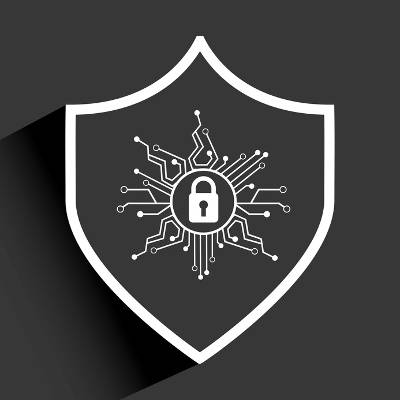Have any question?
Text or Call (954) 573-1300
Text or Call (954) 573-1300
 It’s natural to replace older technologies with better, more recent models. However, the future isn’t looking too bright for the world’s most common website encryption method, SHA1, which will soon be replaced by a more secure protocol. Pretty soon, browsers and devices may have some difficulty reading the latest security certificates, which could cause quite a problem if it’s not remedied.
It’s natural to replace older technologies with better, more recent models. However, the future isn’t looking too bright for the world’s most common website encryption method, SHA1, which will soon be replaced by a more secure protocol. Pretty soon, browsers and devices may have some difficulty reading the latest security certificates, which could cause quite a problem if it’s not remedied.
 As mentioned, there are other types of malware that target ATMs almost exclusively, including a backdoor called Ploutus. Just like GreenDispenser, Ploutus originated in Mexico, and allowed criminals to steal money from ATMs by sending commands through the PIN pad or through a keyboard. Later versions allowed hackers to send a text message to the ATM to distribute cash. While this ATM malware originated in Mexico, it’s suggested by Ploutus’s English localization that it was designed for use in other countries.
As mentioned, there are other types of malware that target ATMs almost exclusively, including a backdoor called Ploutus. Just like GreenDispenser, Ploutus originated in Mexico, and allowed criminals to steal money from ATMs by sending commands through the PIN pad or through a keyboard. Later versions allowed hackers to send a text message to the ATM to distribute cash. While this ATM malware originated in Mexico, it’s suggested by Ploutus’s English localization that it was designed for use in other countries.
 The chances are actually very high that your organization will be targeted if you don’t take action to stop it. Here are three reasons, according to StaySafeOnline.org, that the small business is a key component of a hacker’s hit list.
The chances are actually very high that your organization will be targeted if you don’t take action to stop it. Here are three reasons, according to StaySafeOnline.org, that the small business is a key component of a hacker’s hit list.
Small Businesses Are More Exposed
While large enterprises have the funds and personnel available to enact strict security protocol and regulations, the small business doesn’t. Instead, they rely on their staff’s limited knowledge of cybersecurity to protect their data. It’s reported that 71 percent of security breaches are small businesses, which you wouldn’t be able to tell from the attention given to recent high-profile hacks, like Target and Sony.
Small Businesses Have Sensitive Data
Believe it or not, it doesn’t take much to attract hackers to a business. They understand the true value of data, and even a few credentials or records are enough to attract unwanted attention from these criminals. The typical small business has employee records that hold personal information, financial records like credit card numbers, and some even have health records on file that are in high demand. Hackers take this information and sell it on the black market, which make it a lucrative source of revenue for criminals.
Small Businesses Are Vulnerable to Phishing Attacks
Hackers don’t want to take any risks that they don’t have to. Small businesses are often targeted by spear phishing tactics, which is when a hacker attempts to steal credentials by posing as someone with authority. Hackers will often take on the identity of an organization’s IT technician or vendor in order to acquire credentials for internal network access. This, in turn, leads to hacking activity that’s difficult to trace, and is ultimately much safer than other hacking methods.
The good news about these common weaknesses and shortcomings of small businesses is that it doesn’t have to be challenging to protect your business from hackers. All it takes is some proactive monitoring and a quality security solution from L7 Solutions. By actively monitoring your organization’s network for potential weaknesses in your infrastructure, it becomes much more plausible to keep threats out of your system. Hackers love to take advantage of weaknesses in the source code of operating systems and applications, but if you apply the proper patches, you can dramatically increase your network’s security presence.
Similarly, you want a quality security solution, like a Unified Threat Management (UTM), which can protect your network from all manners of threats found on the Internet. By blocking threats through a combination of a firewall, antivirus, spam blocker, and content filter, you can keep dangerous entities out of your network and destroy those that make it through your defenses. Give us a call at (954) 573-1300 to learn more.
 Ransomware is one of the most devastating computer viruses in today’s computing landscape. You may have heard of one of its most famous variations, Cryptolocker. It received a lot of attention when it dramatically hit the scene two short years ago. Thankfully, the threat from CryptoLocker has decreased after the GameOver Zeus botnet was taken down last year. Although, now we’ve got a new, more contagious strain of this ransomware to deal with known as Cryptowall.
Ransomware is one of the most devastating computer viruses in today’s computing landscape. You may have heard of one of its most famous variations, Cryptolocker. It received a lot of attention when it dramatically hit the scene two short years ago. Thankfully, the threat from CryptoLocker has decreased after the GameOver Zeus botnet was taken down last year. Although, now we’ve got a new, more contagious strain of this ransomware to deal with known as Cryptowall.
 If you feel that there’s an increase in ransomware activity, don’t worry; it’s not just you. Hackers are now taking greater advantage of ransomware, a threat that locks down files and returns them in exchange for a payment. This is wreaking havoc on the computing world. Even the FBI has acknowledged the threat, and has issued a warning that the most likely type of cyber extortion users will encounter is probably going to be DDoS attacks.
If you feel that there’s an increase in ransomware activity, don’t worry; it’s not just you. Hackers are now taking greater advantage of ransomware, a threat that locks down files and returns them in exchange for a payment. This is wreaking havoc on the computing world. Even the FBI has acknowledged the threat, and has issued a warning that the most likely type of cyber extortion users will encounter is probably going to be DDoS attacks.
 For argument’s sake, do you think society today relies too much on technology? In the Information Age, both businesses and governments have to be more careful than ever about how they approach cybersecurity. However, what would happen if a massive cyber war were to render any and all computing systems in the United States inert? Granted, such a powerful, in-depth attack is unlikely, but it’s sometimes fun (and frightening) to examine the worst-case scenario.
For argument’s sake, do you think society today relies too much on technology? In the Information Age, both businesses and governments have to be more careful than ever about how they approach cybersecurity. However, what would happen if a massive cyber war were to render any and all computing systems in the United States inert? Granted, such a powerful, in-depth attack is unlikely, but it’s sometimes fun (and frightening) to examine the worst-case scenario.
 Since the dawn of the computing age, hackers have taken advantage of all sorts of tactics in order to crack systems and ruin lives. With the Internet of Things bringing connected devices from all over the place into the mix, there are more opportunities than ever to take advantage of unsuspecting users. In fact, even car computers are capable of being hacked.
Since the dawn of the computing age, hackers have taken advantage of all sorts of tactics in order to crack systems and ruin lives. With the Internet of Things bringing connected devices from all over the place into the mix, there are more opportunities than ever to take advantage of unsuspecting users. In fact, even car computers are capable of being hacked.
 The Internet is up to its ears with threats and hackers, but some of the most annoying malicious entities are bots. These are systems which can gather information from all kinds of sources. While some aren’t malicious in nature (think SEO bots which gather data from websites), there are those that aren’t so innocent. These tend to fall into the hands of hackers and attempt to steal information or send spam.
The Internet is up to its ears with threats and hackers, but some of the most annoying malicious entities are bots. These are systems which can gather information from all kinds of sources. While some aren’t malicious in nature (think SEO bots which gather data from websites), there are those that aren’t so innocent. These tend to fall into the hands of hackers and attempt to steal information or send spam.
 People dial 911 when they’re in some sort of trouble or in the event of an emergency. If not for the hotline, who knows how many lives could be lost daily. Sometimes, however, help doesn’t come, even when dispatchers have received the call and responded. This generally isn’t the fault of the dispatchers, but rather the criminals who have undermined the rescue efforts thanks to some unorthodox hacking.
People dial 911 when they’re in some sort of trouble or in the event of an emergency. If not for the hotline, who knows how many lives could be lost daily. Sometimes, however, help doesn’t come, even when dispatchers have received the call and responded. This generally isn’t the fault of the dispatchers, but rather the criminals who have undermined the rescue efforts thanks to some unorthodox hacking.
 Does your office practice proper maintenance and security against the latest threats, like Sandworm and CryptoWall 2.0? You should, or else your business might get a nasty holiday gift in the form of the Schannel vulnerability in Microsoft Office. This particular threat allows a hacker to take over the entire system, making it an exceptionally dangerous vulnerability that you can’t ignore. Thankfully, a patch is available to the general public, so you want to apply it as soon as possible.
Does your office practice proper maintenance and security against the latest threats, like Sandworm and CryptoWall 2.0? You should, or else your business might get a nasty holiday gift in the form of the Schannel vulnerability in Microsoft Office. This particular threat allows a hacker to take over the entire system, making it an exceptionally dangerous vulnerability that you can’t ignore. Thankfully, a patch is available to the general public, so you want to apply it as soon as possible.
 This holiday season might leave technology and entertainment supergiant Sony with nothing but a big lump of coal in its stocking. In a high-profile hack, hackers continue to leak Sony’s employees’ sensitive information like Social Security numbers, passports, and even personal emails. This is obviously an issue for the company, but so is its lack of IT security, as shown by their passwords being stored in a folder named “Passwords.”
This holiday season might leave technology and entertainment supergiant Sony with nothing but a big lump of coal in its stocking. In a high-profile hack, hackers continue to leak Sony’s employees’ sensitive information like Social Security numbers, passports, and even personal emails. This is obviously an issue for the company, but so is its lack of IT security, as shown by their passwords being stored in a folder named “Passwords.”
 Grab your tissues, it’s flu season! Just like biological viruses such as the flu can cripple an entire office, digital viruses can cause a lot of trouble for businesses too. Both downtime-causing virus scenarios can be prevented if proper safety measures are followed, like sanitation and cybersecurity.
Grab your tissues, it’s flu season! Just like biological viruses such as the flu can cripple an entire office, digital viruses can cause a lot of trouble for businesses too. Both downtime-causing virus scenarios can be prevented if proper safety measures are followed, like sanitation and cybersecurity.
 Hackers come in all shapes and sizes, with varied levels of skills to boot. The generic garden-variety hacker will probably only try to hack your email and send spam, or steal your personal information. However, there are much worse threats out there, like APT hackers. This week, we’ll cover how you can spot these wolves in sheep’s clothing.
Hackers come in all shapes and sizes, with varied levels of skills to boot. The generic garden-variety hacker will probably only try to hack your email and send spam, or steal your personal information. However, there are much worse threats out there, like APT hackers. This week, we’ll cover how you can spot these wolves in sheep’s clothing.
 Everyone has heard horror stories about the spirits of the dead lingering in this world. Every culture on this planet has different beliefs about the nature of these spectral beings. Not much is known about these beings, but people still believe without a doubt that they exist. In regards to technology, ghosts do exist, in the form of ghost servers.
Everyone has heard horror stories about the spirits of the dead lingering in this world. Every culture on this planet has different beliefs about the nature of these spectral beings. Not much is known about these beings, but people still believe without a doubt that they exist. In regards to technology, ghosts do exist, in the form of ghost servers.
 A few weeks ago, a new vulnerability was discovered in the Internet Explorer functionality of SSL 3.0. Due to the encompassing nature of the vulnerability, all operating systems are affected. This makes it a big problem that must be resolved. Thankfully, Microsoft has released a fix to the vulnerability, called Fix It, making it far easier to prevent the vulnerability from becoming an issue.
A few weeks ago, a new vulnerability was discovered in the Internet Explorer functionality of SSL 3.0. Due to the encompassing nature of the vulnerability, all operating systems are affected. This makes it a big problem that must be resolved. Thankfully, Microsoft has released a fix to the vulnerability, called Fix It, making it far easier to prevent the vulnerability from becoming an issue.
 Hackers are mysterious. Not much is known about them - until they get caught, at least. But until the divine hammer of justice is brought down upon them, they will continue to stalk the shadows and wait for us to unknowingly hand over our personal information. What they don't want you to know is that they generally act according to a few particular variables, and that it is possible to avoid their pitfalls.
Hackers are mysterious. Not much is known about them - until they get caught, at least. But until the divine hammer of justice is brought down upon them, they will continue to stalk the shadows and wait for us to unknowingly hand over our personal information. What they don't want you to know is that they generally act according to a few particular variables, and that it is possible to avoid their pitfalls.
 We reported in August that security researcher Karsten Nohl of SR Labs revealed a flaw in USB firmware that cripples the technology beyond repair. At the Black Hat security conference, it was revealed that USB devices of all kinds can be targeted by hidden malware. Nohl refused to release the code used in the research, due to being concerned that it would be used by the wrong hands, but it has been made public anyway, putting the masses at risk.
We reported in August that security researcher Karsten Nohl of SR Labs revealed a flaw in USB firmware that cripples the technology beyond repair. At the Black Hat security conference, it was revealed that USB devices of all kinds can be targeted by hidden malware. Nohl refused to release the code used in the research, due to being concerned that it would be used by the wrong hands, but it has been made public anyway, putting the masses at risk.
 Major retailers are having a rough time of it these days concerning the security of their customer's financial information. Last December, Target was hit with malware that compromised 40 million customer credit and debit card accounts, and recently, Home Depot was hit with the same malware. What's a connoisseur of mass-produced boxed goods to do?
Major retailers are having a rough time of it these days concerning the security of their customer's financial information. Last December, Target was hit with malware that compromised 40 million customer credit and debit card accounts, and recently, Home Depot was hit with the same malware. What's a connoisseur of mass-produced boxed goods to do?
 For Washington D.C. residents, there's a dubious threat looming in their backyards putting their personal data at risk. It's Coco, a Siamese cat wearing a high-tech collar designed for hacking WiFi networks. Have you taken the proper security measures to protect your sensitive information from feline foes like Coco?
For Washington D.C. residents, there's a dubious threat looming in their backyards putting their personal data at risk. It's Coco, a Siamese cat wearing a high-tech collar designed for hacking WiFi networks. Have you taken the proper security measures to protect your sensitive information from feline foes like Coco?
 If 2014 hasn't been a legendary year for data breaches yet, it certainly is now. Community Health Systems, a hospital network for over 206 facilities across the United States, has been the target of a data breach resulting in 4.5 million records being compromised by Chinese hackers, including Social Security numbers, birthdays, names, addresses, and telephone numbers.
If 2014 hasn't been a legendary year for data breaches yet, it certainly is now. Community Health Systems, a hospital network for over 206 facilities across the United States, has been the target of a data breach resulting in 4.5 million records being compromised by Chinese hackers, including Social Security numbers, birthdays, names, addresses, and telephone numbers.
Learn more about what L7 Solutions can do for your business.
L7 Solutions
7890 Peters Road Building G102,
Plantation, Florida 33324